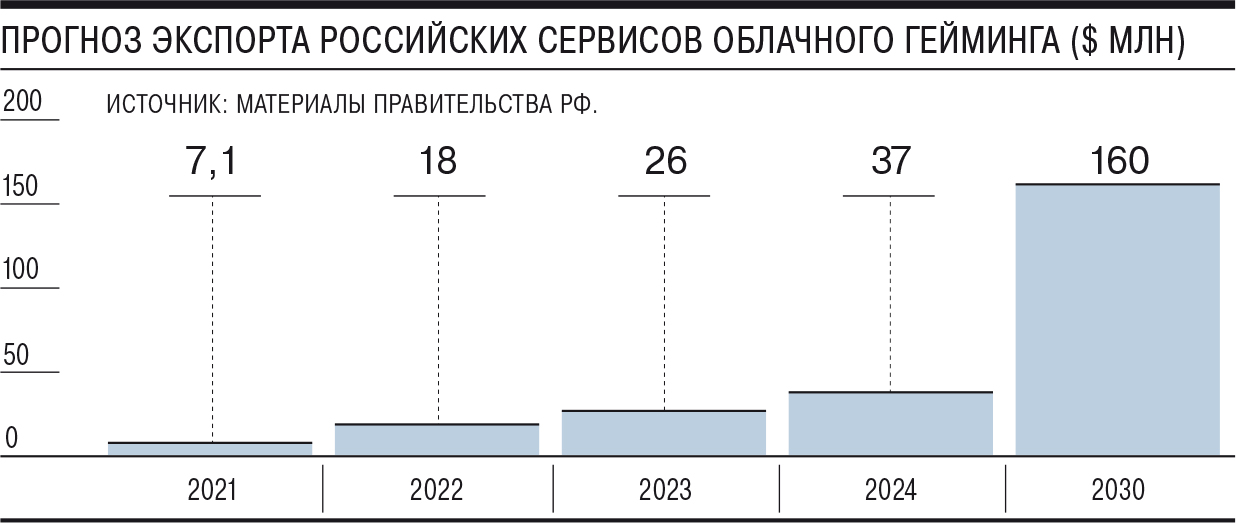The government is going to increase the export of Russian cloud gaming services by 55 times by 2030
Russian officials have prepared a plan for the development of cloud gaming. According to their estimates, by 2030, the export of domestic services should grow to $160 million — 55 times more than it was in 2020. The Innovation Promotion Fund, which will allocate special grants, should help in this.
The corresponding document was signed by Deputy Prime Minister Dmitry Chernyshenko, Kommersant reports.
It should be noted that last year the export of Russian cloud gaming amounted to only $ 2.9 million, but according to the forecast in 2021 it will increase to $ 7.1 million. The segment owes much of this growth rate to the lockdown due to the pandemic and the deployment of 5G networks.
The authorities plan to increase sales of cloud services in the domestic market — from 0.8 billion rubles in 2020 to 44.3 billion rubles in 2030. They also count on the growth of the Russian audience — it is assumed that during the same time the number of gamers will rise from 180 thousand to 10 million people.
Pavel Troitsky, Executive Director of GFN, partially supported the Government’s forecast: “We expect the growth of the cloud gaming market in Russia by 100% year-on-year, but much will depend on the investments of large companies in infrastructure: communications, data centers and equipment, and this is hundreds of millions of dollars. If they do not exist, then growth is not expected.”
At the same time, he doubts that Russian services will be able to show themselves well in Europe. Because to do this, servers will have to be placed there, which carries risks due to the peculiarities of local legislation.
Ilya Hala from 3data and Igor Dorofeev from the Association of Data Center Market Participants believe that it is possible to export services to Eastern European countries and the CIS.
“Cloud gaming is sensitive to network delays and signal response, but distances for Russian companies, if we talk about the nearest Eastern European countries, are not critical. For example, if you go to Kazakhstan, you can build a data center in Omsk,” Hala notes.
The forecast is included in the project “New Internet communication technologies”. It also includes the initiative to launch esports classes at Russian universities by 2023.


